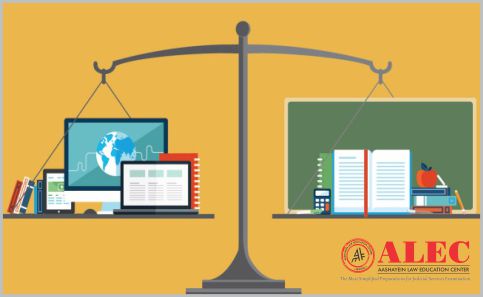Change is the rule of nature. Change and modification come with the flow of time. The Covid-19 Pandemic teaches us plenty of new things that should be taken into consideration. Among them, the online mode of study is one. Though, before the pandemic, there was the existence of online mode, but the importance was less. Now, this is the only way to work properly in any field. It should be remembered that there can be no substitute for offline mode of study. But, time cannot be stopped, challenges cannot be removed and Education cannot be paused. There is no doubt, that, the online mode of study is one of the quality use of the technologies.
Online Mode of Study
The era of the internet and electronic device introduces the very term ‘online’.Like work from home jobs, educational institutes also follow the online mode of study and the education system finds a new way, especially in this pandemic period. Online classes are going on from the school level to the University level over the electronic devices through the internet. There are some platforms like zoom, Google meet, Jio meets, etc. for online classes. Following the schedule, online classes are conducted like regular schools and colleges. Even some of the students have joined many online courses which are as knowledgeable as the offline study.
Offline Mode of Study
The word ‘offline' achieves its importance as the contradiction of the word ‘online'. The offline mode of study is an ancient and popular one. From the very beginning, the education system followed a very offline mode. Offline education modes like school, college, tuition are well known and acceptable to all kinds of society and people. Even in the ancient period, students stayed at their teacher's home and learned from them. It is also remembered, that, not only the buildings such as school or college are the mediums of offline education, but also the schools under the open sky, are considered as the mediums of offline education.
You can also read the latest judgment by visiting [Latest Judgment]
For more information, visit [Aashayein Enquiry Section]
A Comparative Study between the Online and the Offline Mode of Study
In the online mode of study, students can join the class from their respective Homes. Online classes are comfortable for the students as well as the teachers. They can interact with each other over their respective devices. But the offline mode of study does not provide such comfort to both the students and teachers.
In the online mode of study, as students do not need to travel, they get more time for their studies. Even there can be more free time for extracurricular activities. But, in the case of the offline mode of study, students have to spend more time traveling and they get less time for self-study.
In the online mode of study, students have the opportunity to learn more about technology and they can get a clear idea about the whole world from their respective Homes. But in the offline mode of study, it is not easier as the online mode to collect all data outside the classroom.
In the online mode of study, the interaction between students and teachers is less. There is no opportunity for physical interaction in the very online mode of study. But the main purpose of the offline mode of study is to increase the acquaintance and interaction between students and teachers. It is a very ancient practice to physically connect and to learn to adjust with each other.
Students are forced to stay at their homes for the pandemic and they have no other way to play outside or to visit any other places. After doing all the classes in online mode, students have to spend their time at the locked home. Also spending time continuously, with the internet and electronic devices, hampers the health of the students. The minds of the students get affected by such practice. Whereas offline mode of study opens up the scopes and opportunities at the outside for the young minds.
The last but not the least, not everyone gets the opportunity to join online classes. There are many poor people who can not buy a smartphone or a laptop or can not access with the internet. Here, no doubt, the fundamental right of equal opportunity is being violated.

